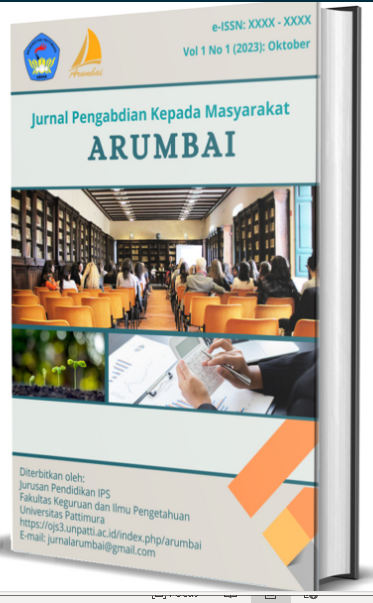Inovasi Kreatif Program KKN: Mengubah Limbah Kain Perca Menjadi Produk Bernilai Ekonomis bagi Masyarakat Desa Durian Lebar Bengkulu Tengah
Creative Innovation of KKN Program: Transforming Waste Fabric Scraps into Products with Economic Value for the Community of Durian Lebar Village, Central Bengkulu
Abstract
Real Work Lecture (KKN) is a form of implementation of the Tri Dharma of Higher Education which provides learning and working experiences to students through community service. KKN which was implemented in Durian Lebar Village, Merigi Sakti District, Central Bengkulu Regency aims to provide training to the community on the utilization of waste fabric scraps. Waste fabric scraps, which are leftover pieces of cloth from the convection and garment industry, are often a problem because they are burned and pollute the environment. This training aims to increase public awareness and concern for waste fabric scraps and to equip mothers to be able to process this waste into products with sales value so as to help the family economy. The results of the training show that the utilization of fabric scraps can reduce textile waste and has sustainable economic potential. With the implementation of the right management strategy, waste fabric scraps can become a source of creative economy for the community.
Downloads
Copyright (c) 2024 Author

This work is licensed under a Creative Commons Attribution 4.0 International License.


